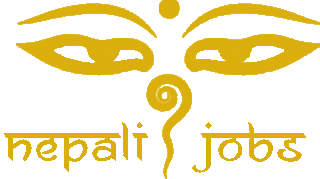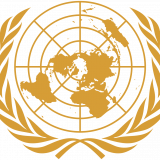Consultant (Education), UNICEF Regional Office for South Asia, Kathmandu, Nepal
Job no: 511607
Position type: Consultancy
Location: Nepal
Division/Equivalent: Kathmandu(ROSA)
School/Unit: Reg Serv Division, Kathmandu
Department/Office: Reg Serv – Prog Section, Kathmandu
Categories: Education, Consultancy
UNICEF works in some of the world’s toughest places, to reach the world’s most disadvantaged children. To save their lives. To defend their rights. To help them fulfill their potential.
Across 190 countries and territories, we work for every child, everywhere, every day, to build a better world for everyone.
And we never give up.
Purpose:
The purpose of this consultancy is to provide technical support to the implementation and scale-up of Learning Competency Framework and Approach (LCFA) and other education activities for displaced children from Myanmar in Bangladesh and technical inputs for the regional strategy on comprehensive school safety and social cohesion in the region.
Key Assignments/Tasks:
The consultant will be mainly focusing on review, synthesis and in-depth analysis of selected documents; visit country offices (mainly Bangladesh) and facilitate meetings with UNICEF Education staff, government counterpart, NGO partners and donors, such as Bangladesh Education working group and perform the following tasks:
Support the Bangladesh UNICEF Education team:
1. Develop and Strengthen the Learning Competency Framework and Approach (LCFA) for upper age group of refugee children: In the previous phase the Learning Competencies for Level I and II was developed. It is planned now that based on the feedback from the field/learning centers in Cox’s Bazar, Bangladesh, the Learning competencies for Level III and IV would be developed and LCFA strengthened with additional guidelines on, teaching and learning material, student assessment and thematic approaches.
2. Develop and strengthen operational strategies in scaling up of the LCFA: The implementation of LCFA will need to consider the complexities of the camp setting, in particular the learning needs of different age groups, out of school children and girls. Additionally alternative strategies need to be arrived at in view of the social norms and traditions amongst the displaced population and the constraints of camp context. The implementation plan also needs to detail strategies for teacher development and support and an overall monitoring system that would monitor the implementation of LCFA.
3. Develop a Concept Note and Operational Strategies on Education of Adolescent/Youth and adolescent girls in the Camps: Review of Literature, make analysis and typology of good practices or strategies that work for adolescents, especially girls in the camp and present to UNICEF / working group and demonstrate it in the field for feedback and corrective measures.
4. Develop and update technical briefing notes: to facilitates UNICEF ROSA/BCO high level meetings with development partners, governments and donors such as GPE and ECW (who are currently investing in the education for Rohingya children).
5. Technical inputs on piloting learning and certification model for children uprooted: Provide support to the BCO team in advancing UNICEF and the Cambridge University Press partnership on developing a global learning and certification model of Education for children uprooted. This will include literature review of Bangladesh and Myanmar curriculum competencies, technical notes on key content areas such as languages (English, Bangla and Myanmar and others) Mathematics and skills.
6. Prepare technical note on establishing and strengthening a monitoring systems that mainly include guidance for monitoring of LCFA implementation with monitoring indicators and tools designed for Learning Centers, teaching and learning and teacher performance.
7. Develop a Knowledge Management Strategy on Social Cohesion/peacebuilding and Education: the paper will build on recommendations of the regional symposium on sustainable Peace and Education, the context of SDG 4 and the new UNICEF Risk-informed Programing Guidance. The paper also need to set a strategic direction, with analysis and presentation, to makes a strong case for developing community of practice in the region, ROSA advocacy and programing opportunities.
Working Condition:
Most of the assignment will be undertaken virtually and the Consultant will be connected with ROSA via skype/email at different stages of the assignment. The Consultant will be required to visit Bangladesh and Nepal. Details of the country visits.
Minimum requirements:
Education:
Advanced university degree in Education or Social Sciences;
Work Experience:
At least 10 years relevant experience and proven track record of research and training work in the field of Education with focus on Education in Emergencies and Social Cohesion/Peacebuilding.
Competencies:
• Handling quantitative and qualitative and literature reviews,
• Excellent writing and communication skills and fluency in English,
• Analytical skills and ability to synthesize large quantities of information.
Others:
Knowledge and work experience in South Asia, particularly working for refugees’ education is preferable.
Last date to apply: 28 March, 2018



